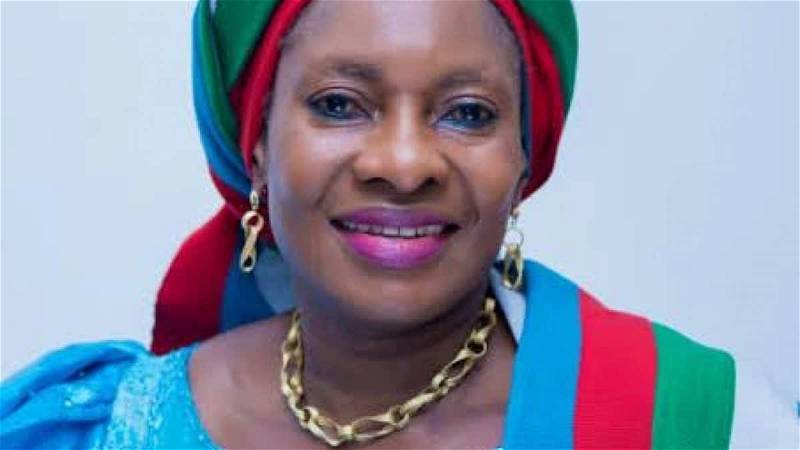
By Cecilia Ologunagba
The Minister of Women Affairs, Mrs Pauline Tallen, has advised the incoming minister of the ministry not to allow pregnant girls to be sent out of school.
She said that education was key to empowering girls.
Tallen gave the advice at a panel discussion on the sideline of an event organised by the Federal Ministry of Women Affairs on Friday in New York.
The event was in collaboration with the World Bank on the sideline of the 67th Session of the Commission on the Status of Women (CSW67).
The two-week CSW67 session, which started on Monday, focused on Innovation and technological change education in the digital age for achieving gender equality and the empowerment of all women and girls.
The News Agency of Nigeria (NAN) reports that the panel discussion led by the minister, spoke to the theme of “Leveraging Innovative Approaches to drive Empowerment and Education outcomes for Nigerian Women and Girls.’’
Tallen, attending her last CSW as a minister in the administration of President Muhammadu Buhari as the tenure ends in May 29, urged that no girl should be left behind.
She said no girl should be left behind for Nigeria to achieve the Sustainable Development Goal five, on gender equality and to empower all women and girls by 2030.
“Economic empowerment is education; not just education of the girl child, but even the second chance education for young girls that got pregnant while in school.
“They are sent away from school leaving the culprit (boy). She didn’t get pregnant alone but the person that got her pregnant will be allowed to go to school.
“No girl should be sent away from school because she’s pregnant. If she is sent away from school, the boy should also be sent away from school.
“She should be allowed back after having the baby and continuing her education,’’ the minister said.
According to her, they are already going through a lot, some of them are sent out from the house by their parents because of anger.
Tallen said she had to adopt some of the girls and support them to give them future, expressing happiness that some of them have been able to fulfill their dreams and ambition in life.
“So, education of the girl child is important, and we must always support the girl child. The child belongs to all, it must not be your child.
“It must not be somebody you know, any girl that falls victim of such unfortunate situation should be supported,’’ she said.
The minister advised the incoming minister to ensure economic empowerment of girls and women and continue with the programmes of the ministry.
“I also appeal to our gender desk officers across the various ministries to be more effective in their tasks.
“We have gendered services across all the ministries, like Ministry of Environment. When you talk of Climate Change, woman is central to that, and we have worked closely with the ministry on that.
“I will urge our desk officers in all the ministries to be more proactive,’’ she said.
Also speaking, Mrs Bisi Fayemi, former Chairman of Nigerian Governors Wives Forum, said there was a need to address challenges women face,
She said that of what benefit economic empowerment would be if she is battered to death by her husband.
Fayemi said that strong will and political commitment was needed to implement all the agreements Nigeria had signed on women empowerment.
“It’s important to ensure that we have adequate financial and human resources to see all these commitments through all levels of government,’’ the panelist said.
Amb. Mobolaji Ogundero, Deputy Chief of Mission, Embassy of Nigeria in Washington DC, solicited the support of international community to implement some of the commitments Nigeria had signed.
Ms Alice Nderitu, UN Special Adviser on the Prevention of Genocide, said that economic empowerment for women is acquiring education and moving a step forward to teach others.
She also urged women to own their narrative.
“So, when I think about women’s empowerment, I think in terms of moving from that trajectory; we move from the knowledge that we have and move it to education.
“We move it to education in a way that we can teach others,’’ the, she said.
NAN also reports that schoolgirl pregnancy” is cited as one of the primary barriers to girls’ education.(NAN)



